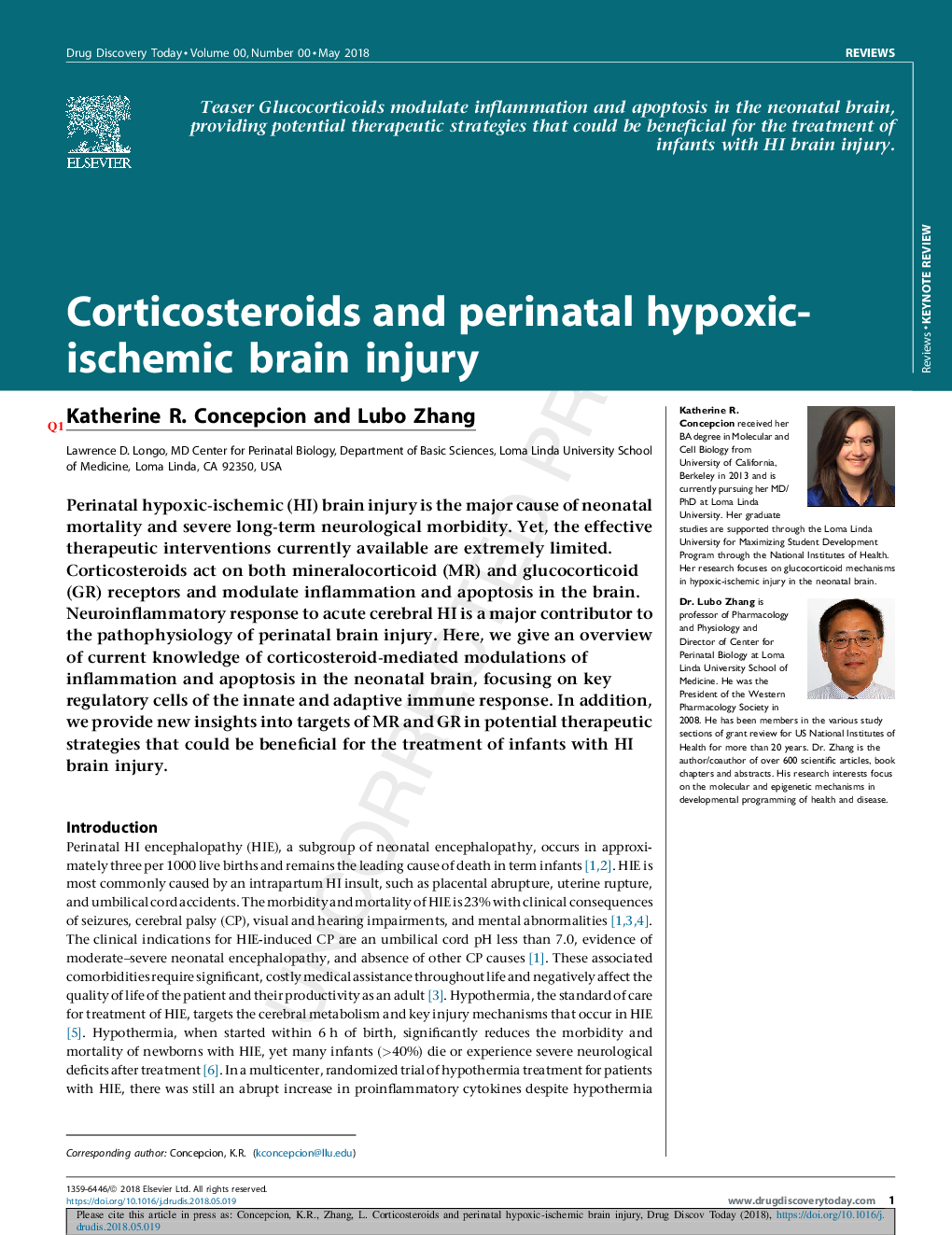| Article ID | Journal | Published Year | Pages | File Type |
|---|---|---|---|---|
| 11019539 | Drug Discovery Today | 2018 | 15 Pages |
Abstract
Perinatal hypoxic-ischemic (HI) brain injury is the major cause of neonatal mortality and severe long-term neurological morbidity. Yet, the effective therapeutic interventions currently available are extremely limited. Corticosteroids act on both mineralocorticoid (MR) and glucocorticoid (GR) receptors and modulate inflammation and apoptosis in the brain. Neuroinflammatory response to acute cerebral HI is a major contributor to the pathophysiology of perinatal brain injury. Here, we give an overview of current knowledge of corticosteroid-mediated modulations of inflammation and apoptosis in the neonatal brain, focusing on key regulatory cells of the innate and adaptive immune response. In addition, we provide new insights into targets of MR and GR in potential therapeutic strategies that could be beneficial for the treatment of infants with HI brain injury.
Related Topics
Life Sciences
Biochemistry, Genetics and Molecular Biology
Biotechnology
Authors
Katherine R. Concepcion, Lubo Zhang,
